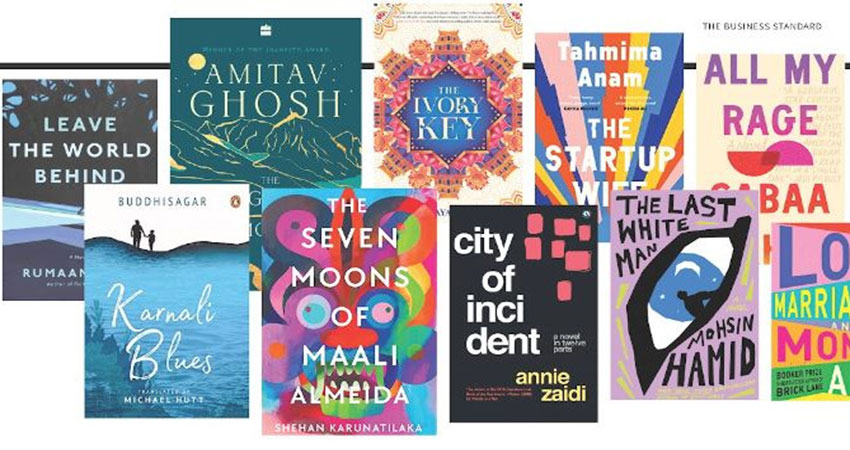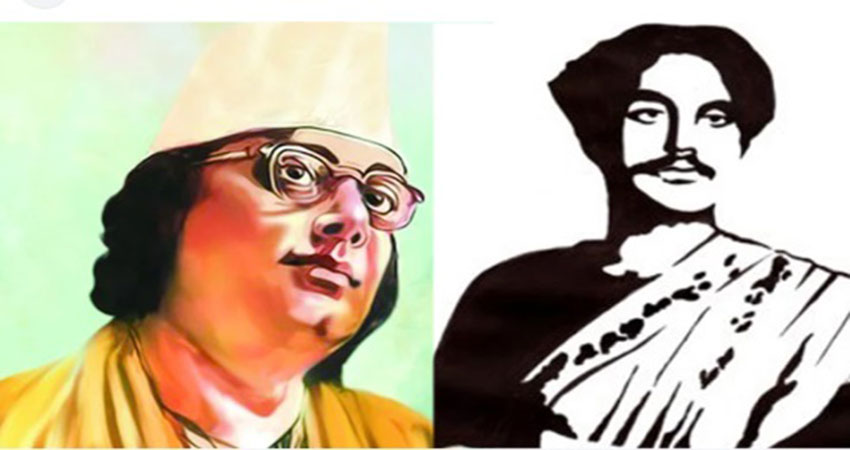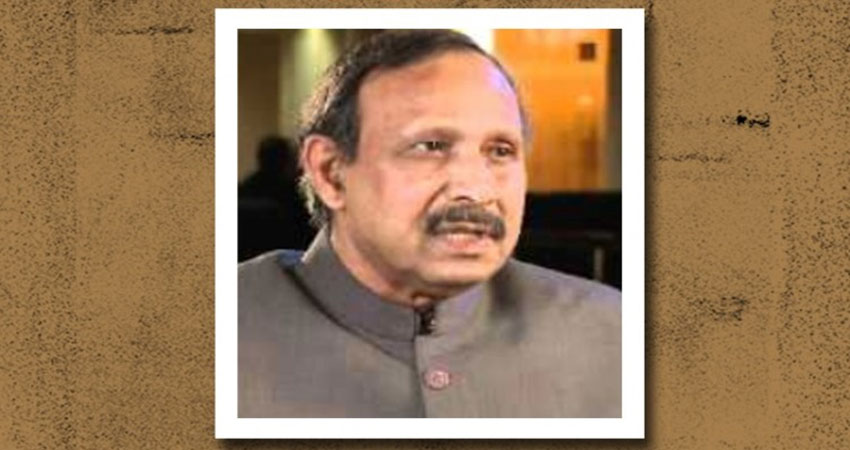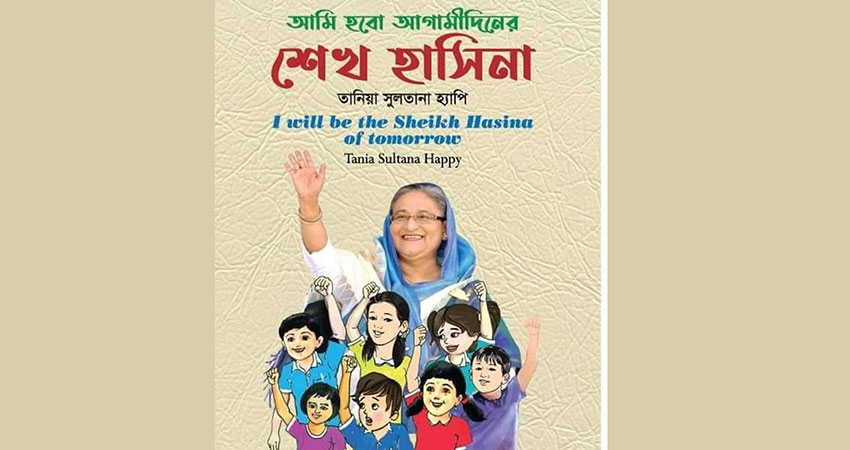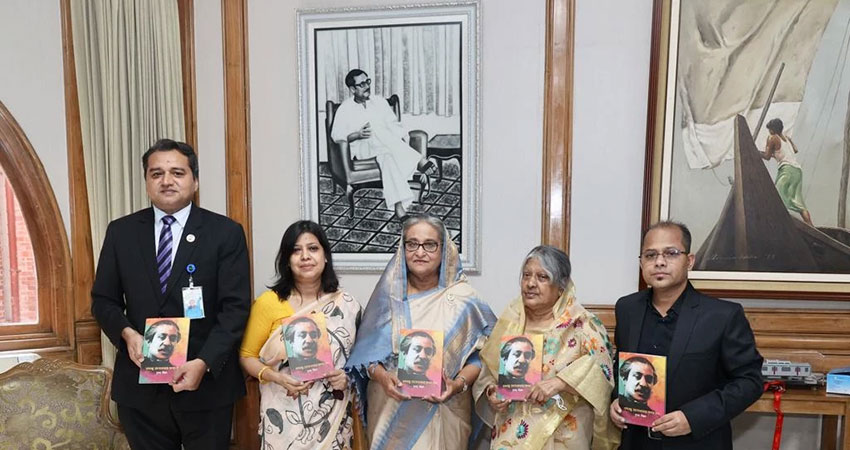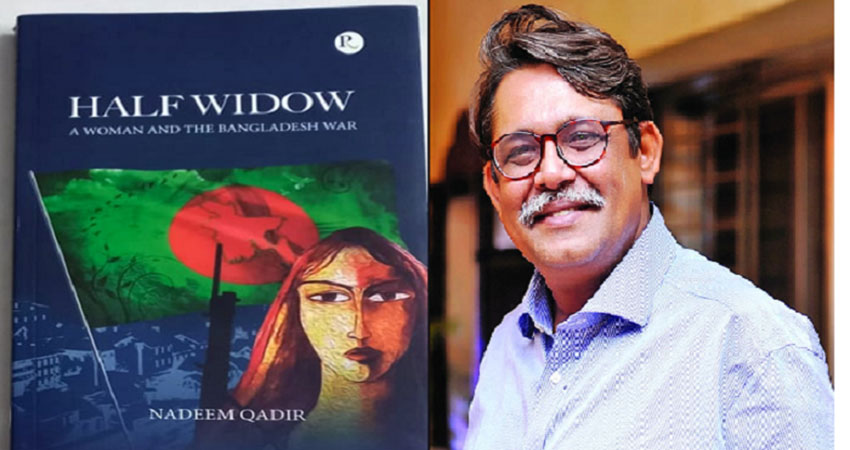The world came to a halt for the first time in 2020, as far as the living memory can travel to attest to it. Restrictions and social isolations witnessed a novel exploration of old relationships while offering ample time for contemplation on issues known to humankind. In 2022, the world enters the post-pandemic era and welcomes the public space to be shared by the crowd.
The literary world, nonetheless, never fell short of books even in such grim times but emerged with a thriving collection for the readers. Here is a list of 10 novels by South Asian authors that, for various reasons, have been considered the best published since the Covid-19 pandemic.
Leave the World Behind by Rumaan Alam (2020)
The Covid-19 pandemic has offered the world a new perspective on how people behave when they are met with a crisis – from stockpiling or hoarding essential items to gathering one's savings tucked for emergencies.
Rumaan Alam's third novel introduces one such panic-stricken crisis in Long Island where Amanda and Clay are spending their vacation with their teenage son and daughter in a rented home. They find themselves in distress as Ruth and G H, a black couple, bring the news of a blackout and looming hurricane warning. While the two families are forced to live under the same roof, the tenant family showcases their prejudice as they grow suspicious because "those (black) people didn't look the sort to own such a beautiful house."
The novel also recounts how domestic equilibrium paves the way to relieve the narrative tension when people meet with terrifying events. As Netflix has reserved rights to the book, an adaptation is imminent in the future.
City of Incident: A Novel in Twelve Parts by Annie Zaidi (2022)
How often do people find themselves surrendering to the power of a city? Annie Zaidi provides the readers with a glimpse of twelve people's (six men and six women) lives dealing with the fever of the world in an unnamed city.
The book depicts the everyday encounters between strangers and the tensions created between them: how they observe other people and how other people perceive them with a varying range of emotions from sensual to combative. With a local train in its backdrop, the novel zooms in to have a closer look at their lives and thoughts, each given a single chapter.
Zaidi confronts class, social mobility, powerlessness, benevolence, and freedom through different incidents before moulding it into the shape of a novel. Although these unnamed characters never come together as a story, they seem to be interwoven through the silent interactions of the crowded locale of the metropolis. This novel helps the readers realise the zeal of the shared public spaces as they enter the post-pandemic world.
The Last White Man by Mohsin Hamid (2022)
Mohsin Hamid, the New York Times bestselling author of 'Exit West', sketches a Kafkaesque change in his latest novel. Anders, the protagonist, much like Kafka's Samsa undergoes a transformation – only this time he finds that his race has changed. With his changed skin colour, he becomes an 'other' in the eyes of white people as he resists discriminatory treatment from them.
Eventually, this transformation spreads like an epidemic as many people fall prone to it until the only last white man is left behind. Although the change is in people's appearance only, the city runs into chaos where nothing is the same anymore. The narrative serves as a powerful condemnation of racism and advocates shared love for humanity.
The Seven Moons of Maali Almeida by Shehan Karunatilaka (2022)
Shehan Karunatilaka, one of the bestselling authors of Sri Lanka, offers his newly written 'The Seven Moons of Maali Almeida' to the community of readers around the world.
Set against the backdrop of a bitter civil war, the novel time travels to 1990 while incorporating the ghost of a thirty-nine-year-old war photographer named Maali, giving it a touch of magic realism. He wakes up to find out that he is dead, and the readers are told that he is an atheist, gay, and gambler. He is given seven moons or one week to expose the corruption and violence of the war while revealing the mystery of his death. His mission asks him to connect with the people he loved and find his stash of clicked photographs.
He also comes across other ghosts narrating their pasts and is acquainted with the spectral rules they are to abide by. The readers take the liberty to be occupied in this political and historical satire as the novel ushers into the long list for the 2022 Booker.
Love Marriage by Monica Ali (2022)
The author of 'Brick Lane', Monica Ali's newly published 'Love Marriage' explores the romantic relationship of Yasmin Ghorami and Joe Sangster, both in training to be doctors in contemporary London. Their amalgamation unfolds the vast gulf between the two families – the conservative Indian Ghoramis and an unorthodox single British mother.
Dealing with family secrets, identity crises, infidelity, class conflict, and cultural clash, this novel brings human complexities and connections to light. With such premarital tension and collision of ideologies, the novel offers an engaging reading experience.
The Living Mountain: A Fable of our Times by Amitabh Ghosh (2022)
The world might feel like a better place in the post-pandemic times. However, it is time that Amitabh Ghosh's 'The Living Mountain: A Fable of our Times' redirects the world's attention to environmental issues.
This novel, thus, caters to the environmental emergency by narrating the tale of the living mountain, the Mahaparbat in Nepal. While deploying the theme of colonisation, Ghosh condemns the exploitative nature of the villagers of the valley who live under the shadow of the mountain and the Anthropoi who wanted to subjugate them.
The novel gradually turns into an eco-horror story as nature fights back and both parties struggle to manage the series of disastrous events that follow.
The Startup Wife by Tahmina Anam (2021)
Can technology create distance among couples where it is thought to bring people together?
While one ponders the question, Tahmina Anam sets Asha Ray, a brilliant programmer, to work on her brainchild platform to revolutionise the tech world. Her husband Cyrus who has travelled to various places believes in creating his own philosophical and religious rituals. He joins her mission and together they create a start-up that could personalise religious rituals.
The couple welcomes overnight success. However, Cyrus alone becomes the brand face of the platform and takes all the credit for the work. The readers' attention shifts to the dynamics of their relationship, gender politics, and start-up culture in the tech-savvy world.
Karnali Blues by Buddhisagar (2010), translated by Michael Hutter (2022)
'Karnali Blues', being one of the most widely read novels in Nepal, makes it to the list as Michael Hutt's translation of the book published in 2022.
Buddhisagar primarily bases the novel on the bond between a father and a son evoking intangible emotions in readers. Brisha Bahadur replays his childhood in his mind while tending to his ailing father who has suffered a brain haemorrhage. The intricate details of his happy memories as a child simply contrast the obnoxious setting of the hospital. The magic of the novel is in the connection that it creates with the readers through a beautiful father-son relationship.
All My Rage by Sabaa Tahir (2022)
Sabaa Tahir's 'All My Rage' follows two best friends Salahudin and Noor whose origins can be traced back to Pakistan. With their forlorn attempt to escape racism in California, they also struggle to survive in their dysfunctional families.
The novel envisions their teenage dream but also shows a disparity between generations. As the story turns tragic, the teenagers feel 'othered' and yearn for a home in the true sense. The readers not just witness them become support systems for each other, but also sense a potential romance between the duo as the novel progresses.
This novel promises an immersive reading experience by evoking all the emotional cords.
The Ivory Key by Akshaya Raman (2022)
Is magic just a 'willing suspension of disbelief'?
What happens when people yield to magical powers and see them as their last resort? With Akshaya Raman's 'The Ivory Key', readers are expected to fasten their seat belts as they are being carried into the mysterious world of four royal siblings.
With magic waning like melting glaciers on earth, Ashoka, the country whose integrity depends on magic, is surrounded by enemies. The torn-apart siblings, Vira, Ronak, Riya, and Kalib must find the ivory key to strengthen their country and reap personal benefits and gains from the magic that it unlocks.
With their unified mission comes the exploration of rivalry, relationships and power dynamics among the siblings. The treasure hunt narrated through vivid imagery makes it an adventurous journey for those who believe in the magic of reading.
10 Best Novels by South Asian authors since the 2020 pandemic
